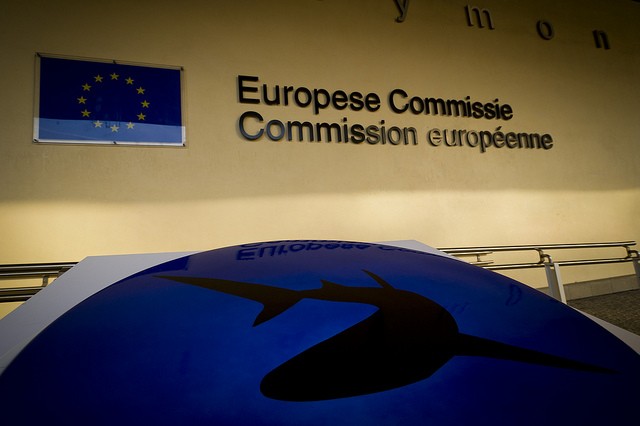MEPs Must Back "Bold Step" to Ban Shark Finning

As the European Commission proposes an outright ban on shark finning, the senior vice-president of the European Parliament's fisheries committee warns fellow MEPs not to water down the plans.
The cruel practice of shark finning is big business, not just in Asian countries like China, where fins are coveted as a delicacy fetching up to €1,000 each. European fishermen are making a killing from this lucrative yet inhumane trade too. It is the high value of shark fins, in contrast to the lower value of shark meat that creates the economic incentive for shark finning. Fishermen cut the valuable fins from the fish and throw the rest back into the water, often while the animal is still alive.
Unfortunately, sharks have a serious image problem – not helped by their terrifying pop-culture depiction in films like Jaws – that means they have few sympathisers outside the conservationist community. Indeed, fishermen in European Union member states like Spain, France and Portugal and Britain, which are responsible for 90 per cent of EU finning and benefit greatly from this extremely lucrative trade, know that the punishments for wrong-doing are miniscule compared to the rewards on offer.
But in truth, sharks are particularly vulnerable to human exploitation because they reproduce relatively late in life, and have few young. The likely loss of shark species from our oceans would upset the whole ecosystem. The sharks that are tossed back into the water, after having their fins hacked off, often languish on the sea bed until they're finished off by another predator or starve to death. The alternative – landing sharks with fins attached or not at all – not only effectively halts the cruelty of finning, but also offers vastly improved information about the species caught. This information is vital for robust population assessment and effective global shark management.
The European Commission has finally proposed an outright ban on shark finning, which has contributed massively to the decline of sharks in global waters. The practice of removing fins from carcasses at sea has officially been illegal since 2003, yet Article 4 of the regulation means that fishermen can easily apply for a derogation that allows them to get permits to continue the practice under certain conditions. The fact is, the permits are too easy to obtain and for those that get them, the conditions are far too easy to flaunt and too difficult for officials to check upon. The practice of finning will remain widespread as long as the permits are handed out.
When these proposals come before MEPs, there will be certain member states seeking to water them down. This would be disastrous, as the commission has taken a very bold step by proposing the removal of Article 4. The new commission proposal would prohibit the removal of shark fins onboard vessels, thereby requiring EU vessels to land sharks with their fins naturally attached to the body, with no exceptions and no derogations.
This is a positive step toward the much-needed protection of sharks but the responsibility now lies with fisheries ministers and MEPs for all 27 member states, to agree that the proposal is the only reliable way of ensuring that sharks are not finned. The current loophole makes it impossible even to detect whether the inhumane practice of finning has even occurred. By adopting a fins-attached approach, at a stroke the EU will bring an end to this cruelty in its waters and deliver a massive boost to shark management and conservation efforts where EU vessels are catching sharks.



